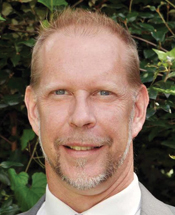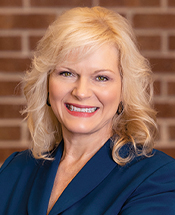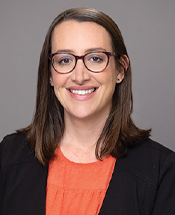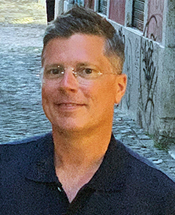
Many people aspire to be long term care administrators, whether the choice is a natural step to advance their career or in pursuit of a passion to help others. To ensure aspiring leaders are prepared for this rewarding but challenging position, administrator training programs are changing with the times.
The Administrators of Tomorrow
Nursing and residential care facility administrators are categorized under medical and health services managers by the U.S. Bureau of Labor Statistics, which projected a 29 percent growth in employment for such managers between 2023 and 2033.
 However, Jody DePriest, regional vice president at Pathway South, cautioned, “Anyone who comes to this field for the money and the glory of being called a licensed nursing facility administrator is in for a surprise. This is a demanding career, often a 24/7 job, and money can’t be the motivator.”
However, Jody DePriest, regional vice president at Pathway South, cautioned, “Anyone who comes to this field for the money and the glory of being called a licensed nursing facility administrator is in for a surprise. This is a demanding career, often a 24/7 job, and money can’t be the motivator.”
He added that the most successful aspiring administrators are those with some “life experience under their belt.” Then, he continued, “we can train them, give them the tools and resources they need, and provide a realistic view into the world of long term care.”
Because of the job’s demands, people don’t generally take the decision to be an administrator lightly. Randy Ingbritsen, interim regional lead, continuing education and innovation at Penn State Abington, said, “More than likely, they’ve done their homework, because it’s a longer journey than just completing a class and then taking an exam. This is a demanding profession, but you can change the lives of residents. We need to remind students about what they’re able to accomplish and how powerful and meaningful a job this is.”
Many students are already working in the health care field in some capacity, for instance, as a nurse or nursing assistant. DePriest added, “They need to develop their management style and find an organization where they fit into the culture.”
Something Old, Something New, Something Different
There are some requirements that vary from state to state, and there are various routes for training. In most, however, administrators-in-training (AITs) need to complete between 800 hours and 1,000 hours of an on-site internship. This can be a particular challenge for those who are working while learning, as Deborah Franklin, senior director of quality affairs for the Florida Health Care Association, agreed.
 Franklin shared that a small number of companies offer budgeted slots for AIT internships or preceptorships, and one organization was able to establish a scholarship program. While there is no shortage of training programs or students, more paid opportunities could ensure the field doesn’t lose people due to financial barriers.
Franklin shared that a small number of companies offer budgeted slots for AIT internships or preceptorships, and one organization was able to establish a scholarship program. While there is no shortage of training programs or students, more paid opportunities could ensure the field doesn’t lose people due to financial barriers.
Lindsay Peterson, PhD, research assistant professor and director of the Health Care Administration and Aging Sciences internship program at the University of South Florida, explained, “We have a bachelor’s degree designed from beginning to end to provide training for someone who intends to work in a nursing home, and we’ve been working on expanding it to be relevant to students who want to go into another realm of management or administration of senior care or senior living beyond nursing homes.” The Health Care Administration bachelor’s degree includes the state-required Florida AIT program.
Training programs across states and regions have much in common. They address topics as required by the National Association of Long Term Care Administrator Boards in the areas of care, services, and supports; environment and quality; and operations. Some programs also address other skills, including conflict resolution, communication, leadership, and use of technology.
The broad range of training generally prepares students for their administrator role. However, Franklin said, “sometimes students say at the end of their training that they still wish they knew more.”
Once they get a chance to see firsthand what the job is about, they want more education and training opportunities. Peterson said, “I urge my trainees to write to me about what they're learning as they are talking to residents, engaging with staff, and seeing how things are being managed and dealt with.” This kind of information is invaluable to help program directors understand what they need to add to training and courses or what they should revise.
The American Health Care Association/National Center for Assisted Living (AHCA/NCAL) offers a variety of programs to help new—as well as established—administrators build their skills and gain new competencies. They can fill in any gaps they identify in their training and boost their knowledge and capabilities. Among the offerings:
- Nursing Home Administration. Beyond the Essentials. This is a multifaceted online training and resource program for administrators, AITs, directors of nursing, and others that address the major components required for successful nursing facility management.
- Building Trust Leadership Academy. This teaches practical skills to help facility leaders build trust with their staff. Trust is the foundation for success for all long term care leaders. This virtual 15-week interactive program includes easy-to-use tools and resources to help build trust at all levels of the organization. It is designed for long term care leaders and managers, both clinical and nonclinical, in nursing homes or assisted living, to include administrators, directors of nursing, senior leaders, department heads, infection preventionists, quality improvement leaders, and unit leaders.
- Advancing Assisted Living Leadership. Participants will learn more about the critical role they play in the mission, vision, and values for their team and organization. Learners will build their knowledge about emotional intelligence, conflict resolution, relationships navigation, and the power of data.
 Hawley Hunt, LNHA, MBA, MHA, senior director of regulatory and quality services at AHCA/NCAL, expanded on the Nursing Home Administration course: “The program was developed to build on the administrator-in-training program administrators complete prior to becoming an administrator. Administrators learn so much information in their AIT program; however, there is so much more they need to know to be successful. The Beyond the Essentials program provides webinars on important topics such as financial, clinical, regulatory, and leadership development. This helps them understand others’ roles and responsibility and how the team works together to provide quality care.”
Hawley Hunt, LNHA, MBA, MHA, senior director of regulatory and quality services at AHCA/NCAL, expanded on the Nursing Home Administration course: “The program was developed to build on the administrator-in-training program administrators complete prior to becoming an administrator. Administrators learn so much information in their AIT program; however, there is so much more they need to know to be successful. The Beyond the Essentials program provides webinars on important topics such as financial, clinical, regulatory, and leadership development. This helps them understand others’ roles and responsibility and how the team works together to provide quality care.”
DePriest noted that when AITs and young professionals realize they have a team to work with, they can relax a bit. They understand that they’re not working in a vacuum, and they don’t need to know everything.
“They need to understand the roles of the team so that they can be good team leaders and team players. The best advice I would ever give is that it cannot be top-down management. This is a hands-on job. They need to be willing to roll up their sleeves and get in there with their team.”
As the field evolves, training programs need to keep up. Peterson shared, “One thing I love about our program is that instructors who teach core courses are working professionals who are dealing with issues such as regulatory and surveyor guidance updates, quality measures, and value-based payments.”
Trainees need to understand these issues and stay on top of changes and trends. Peterson’s instructors address these needs by, for example, providing shadowing opportunities and inviting guest speakers to share their knowledge and experiences.
DePriest added, “Quality measures [QMs] are a huge emphasis right now. For new administrators to fully comprehend QMs, they need to understand the importance of a good admissions process and having strong communication with referral sources.” He added that new administrators need to be aware of the implications of accepting patients they don’t have the resources or staff to properly care for.
Appealing to New Generations of Leaders
Today’s trainees want flexibility in their training. Hunt said, “It is essential for newer generations of administrators to have training that offers some online courses, some hands-on training, and some interactive programs. They want multiple options and opportunities to learn; they want a hybrid learning environment.” She added that it is important for them to have access to digital resources and asynchronous learning opportunities.
 Franklin said, “Millennials and Gen Z are digital natives and used to learning online through a variety of venues. At the same time, they may not have the time, money, or interest to attend in-person programs.”
Franklin said, “Millennials and Gen Z are digital natives and used to learning online through a variety of venues. At the same time, they may not have the time, money, or interest to attend in-person programs.”
She agreed that offering flexibility—some online courses and some in-person training—with creativity is the best strategy for attracting younger professionals. “We have to make sure they gather significant knowledge and that we're constantly offering additional education and training as they move into their careers.”
Ingbritsen stated, “We’ve been doing online training since before the [coronavirus] pandemic. Now we have both online and in-person courses. We have two separate sessions on different evenings and different schedules to meet the needs of our students.”
It is important to remember that students may be juggling full- or part-time jobs and their training. They also may have young children or elderly relatives to care for and limited financial resources and time. Meeting them where they are and helping them overcome their obstacles are key to a successful training program.
Balancing Realistic Expectations and Professional Pride
One challenge of administrator training is presenting a realistic picture of what trainees can expect on the job while not overwhelming or intimidating them with the full scope of their responsibilities. Getting an honest portrait of the challenges they will face is essential to ensuring their success, but they also need to feel confident about their ability to make a positive difference.
Franklin noted, “We try to encourage and inspire them and make them feel confident that they can handle what’s coming at them. Our leadership program has been popular because I give real-life examples of the impact they can make.”
Ingbritsen agreed. “It’s important to have the opportunity for instructors to share positive stories about things that have happened or that they’ve done. It’s important for students to hear that while this is a hard profession, you can change lives. We need to remind them what they’re able to accomplish.”
Instructors and preceptors can and do provide students with the tools and resources they need to address the profession’s challenges while nurturing students’ desire to help people and make a positive difference.
Joanne Kaldy is a freelance writer and communications consultant based in New Orleans.